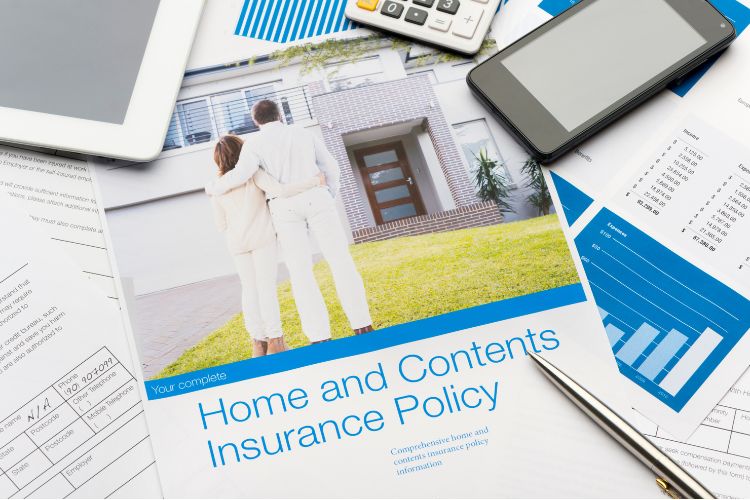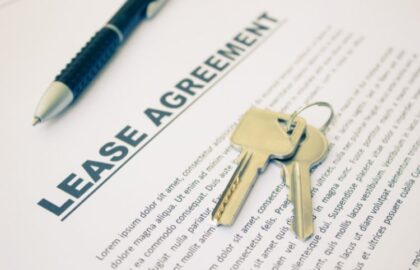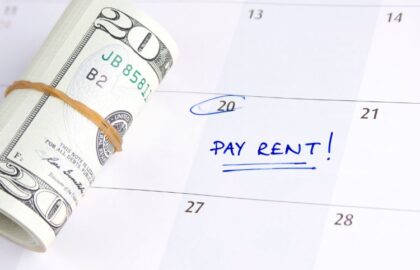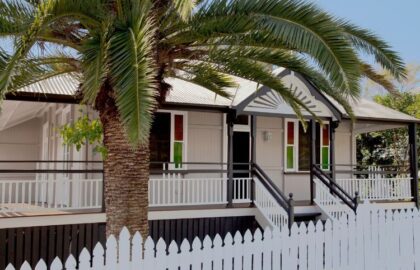
Owning rental property can be an excellent investment, but it’s not without its risks. A variety of unfortunate events can threaten the safety and value of your property, such as fire, theft, water damage, and even tenant mishaps.
That’s where insurance steps in to safeguard your investment property against uncertainties. One crucial type of insurance for anyone renting out their property is building contents insurance for landlords. But what exactly does it cover? Is it the same as regular home insurance? And is it the right call for you?
In today’s guide, we’ll explain everything you need to know about this type of insurance to help you decide whether it’s the right call for you.
A Brief Overview of Building Contents Insurance
Building contents insurance is a type of insurance specifically designed for property owners who rent out partially or fully furnished premises.
Unlike standard home insurance which primarily covers the structure of the building itself, building contents insurance focuses on protecting the belongings you own and provide within the rental property for the tenant to use.
One thing you should know here is that building contents insurance is not exactly the same as “Landlord Insurance”, which is a more comprehensive insurance policy responsible for covering both your property as well as its contents when you’re renting it out.
On the other hand, building content insurance is only concerned with the content of your property, whether you’re the one living in it or not.
While mostly associated with furniture, building contents insurance can also extend to certain permanent fixtures in your home, depending on the insurance policy you apply for.
What Does Building Contents Insurance Typically Cover?
Building contents insurance offers financial protection for your belongings inside your home in case of damage or loss from certain events.
Of course, the specific coverage details can vary between eligible policies and providers. However, they’ll typically protect against certain events. Some carriers might also add a variety of optional insurance products/items/policies for an additional fee.
Ideally, you should expect a typical building content insurance policy to cover some or all of the following items:
- Furniture, furnishings, and carpets
- Appliances and electronics, especially freestanding ones
- Tools and equipment in the house
- Some permanent fixtures
A general rule of thumb here is that anything portable and moves freely within the rental property would be covered in the policy to a certain limit.
Does Building Contents Insurance Cover Legal Liabilities?
Building contents insurance primarily covers the cost of repairing or replacing your belongings if they are damaged, lost, or stolen.
That being said, many insurance providers will also bundle a legal liability cover with the contents insurance policy or as an add-on for an additional premium, which can cover up to $20 million in some policies.
However, it’s not a universal inclusion and you need to check your policy and provider for more information about legal liability insurance.
Does Building Contents Insurance Cover the Tenant’s Possessions?
Building contents insurance typically won’t cover the tenant’s possessions, as it’s specifically designed to cover the owner’s belongings within the property structure, such as built-in fixtures, carpets, and any appliances they provide. The tenant’s possessions are their responsibility and require separate coverage.
Does Building Contents Insurance Cover Lost Rent Income?
The answer here mainly depends on the insurance provider and what’s included in your insurance policy. However, in many cases, building contents insurance typically won’t cover rent income lost during an insured event.
That being said, it’s common for insurance providers to offer loss of rent covers as a part of landlord insurance. Some may automatically include it within the main bundle while others will offer it as an add-on or optional feature.
This cover reimburses you for lost rental income if the property becomes uninhabitable or inaccessible due to damage caused by an insured event.
What Kind of Events Would Trigger the Building Contents Insurance?
The events that would trigger building contents insurance fall into a few main categories. Here’s a quick breakdown of each one of them.
Accidental Events

These are accidental events that cause unexpected damage to your property and its belongings, which typically include:
- Fires Damage: Covers all kinds of damage caused by the fire itself, smoke, or firefighting efforts.
- Water Damage: Includes incidents like burst pipes, sudden liquid leaking from appliances, or flooding from heavy rain
- Accidental Breakage: covers accidental damage to items like furniture, appliances, electronics, and even glassware if broken accidentally.
- Spills and Stains: Covers liquid damage that could affect carpets and cause damage to floor coverings.
- Impacts: Includes impact damage from falling trees, vehicles, etc. This may also cover damage by animals as well as the cost of removal of debris.
- Explosions: Protect against damage caused by accidental explosions
- Electrical Damage: Protect most appliances and some fixtures against damage caused by electricity failures, such as electric motor burnouts that may affect refrigerators, air conditioners, or washing machines.
Natural Disasters
These are catastrophic events that cause sudden and significant damage to your property’s contents.
Different insurance providers will have different policies for these disasters, but they typically cover the cost of repairs in the case of the following events:
- Tsunamis
- Floods
- Earthquakes
- Lightning
- Bushfires
- Storm and storm surges
Malicious Damage
In most cases, building contents insurance will also cover various forms of malicious damage, also known as vandalism. This can take a variety of forms, including:
- Damage by tenants
- Theft and burglaries
- Civil commotions and riots
Can a Property Manager Help You with Building Contents Insurance?
While a property manager isn’t a financial situation, insurance provider, or broker, it can still offer a lot of help when it comes to landlord contents insurance.
For example, some property managers will share their knowledge about different building contents insurance options and explain basic coverages and benefits. They might also share recommendations for reputable insurance providers.
Additionally, a good property manager might offer assistance with paperwork and connect you with reliable brokers to negotiate a suitable insurance premium.
Professionals Property Management in Cairns offers a remarkable variety of specialised services with full transparency to help you make the most out of your investment property
How Much Does Building Contents Insurance Cost?

The cost of building contents insurance is not a fixed value. Instead, it’s calculated based on a wide range of variables and factors that can affect the final premium you have to pay for the policy.
One of the main factors that will impact the cost of building contents insurance is your property’s risk factors, which include:
- The type of property, whether it’s residential or commercial
- The likelihood of claiming insurance
- The size and status of the property
- The number of items and the value of the content you want to cover
Additionally, some factors could also impact the insurance premium, such as the situation of your rental agreements, the assessment of tenants renting your property, and whether you’re applying for any premium policies or add-ons.
Is Building Contents Insurance Mandatory?
Building contents insurance itself is not a legal requirement in Australia. However, most mortgage lenders might still mandate building contents insurance as a condition to approve your loan.
This protects the lender’s financial interests in case the property is damaged beyond repair and/or can’t be sold to recoup the loan amount.
It’s crucial to understand that even if your mortgage doesn’t require it, having building contents insurance will also give you peace of mind if you have contents in your rental property.
This is because it protects your own financial stability from unforeseen events and damage. Repairing or replacing lost or damaged belongings can be expensive, and insurance provides the safety net for such situations.
Important Tips to Keep in Mind About Building Contents Insurance for Landlords
Now that you know more about building contents insurance, here are some essential tips to consider:
Compare Different Policies and Coverage
Get quotes from multiple insurers to find out more about the best policy for you. don’t just go with the one that offers the minimum premium, as it may not offer the kind of coverage you’re looking forward to.
Don’t Assume Regular Building Insurance Covers It
Even if you have standard building insurance, you still need building content insurance, as one is not a substitute for another.
This is especially true for rental properties, as some building insurance policies become invalid if you rent out your property, even if it’s only a part of your property.
Additionally, landlord-specific policies cover unique risks like tenant damage and liability that won’t be covered by building insurance.
Go Over Other Details of the Lease Agreement
While the contents insurance policy is a major part of your rent agreement, it’s not enough to establish a solid rent agreement. For example, you need to understand the Strata status of the property.
This is because, while landlords typically have the sole right to evict tenants, a strata committee could still end up evicting tenants through certain legal proceedings.
Final Thoughts
Building contents insurance can be a tricky policy to tackle for most landlords, but it’s a necessary nuance to ensure that the contents of your property are safe during the lease period.
Lastly, remember to always read the fine print while checking out an insurance policy and don’t hesitate to seek help from a qualified professional to get the best policy for your needs.








